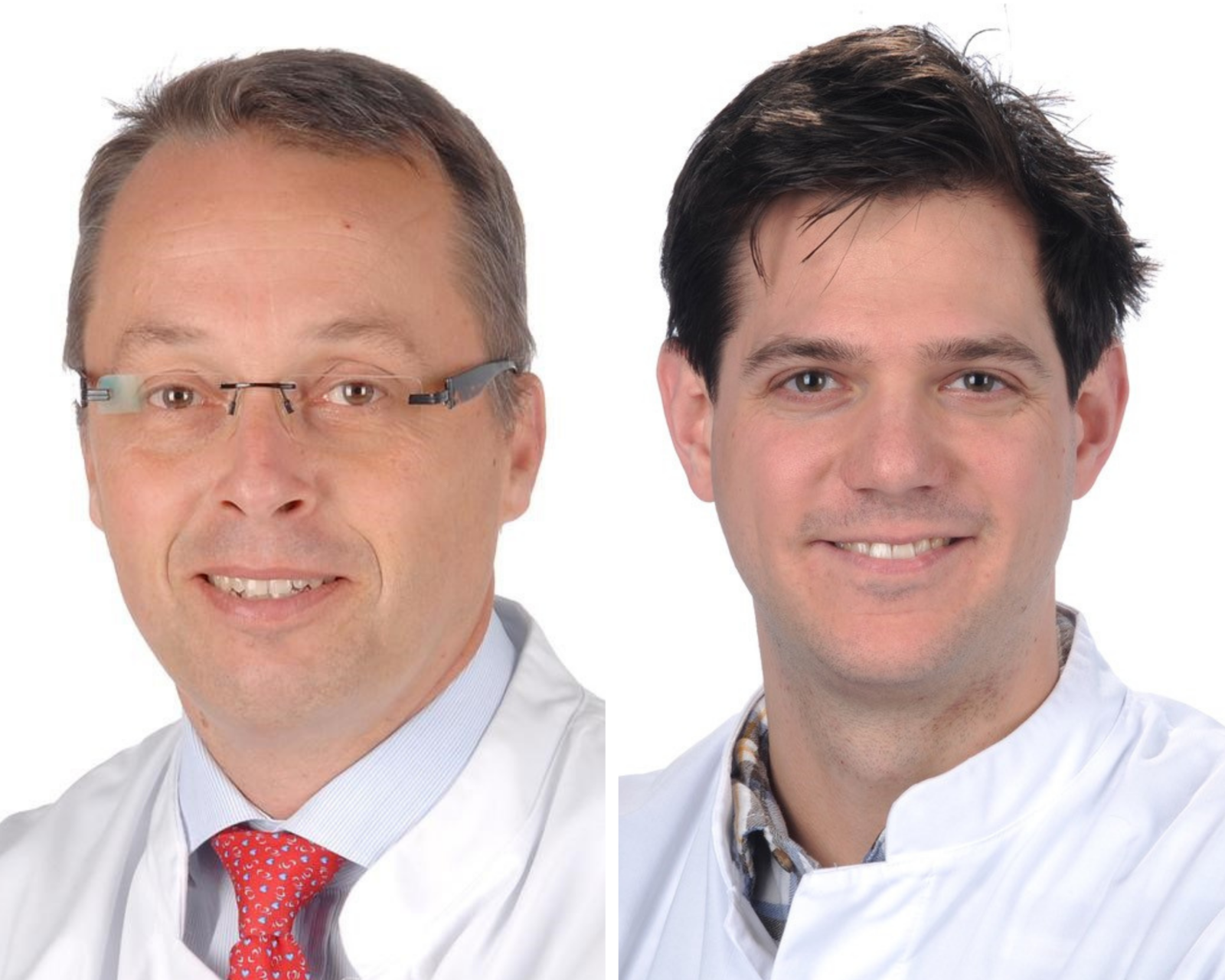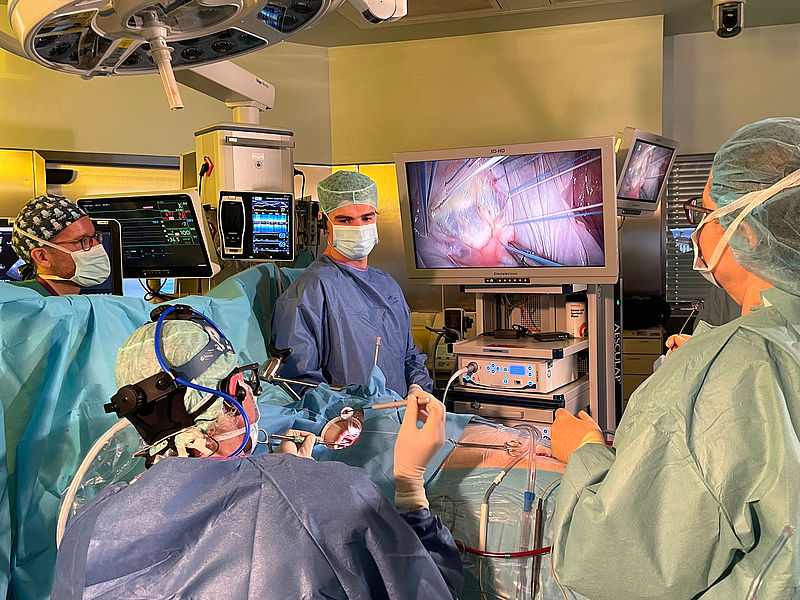An insufficient tricuspid valve is a severe and progressive disease that often worsens the clinical condition. Until some time ago, only cardiac surgical procedures were available for the treatment of the valve, and only during the last few years have minimally invasive treatment methods using cardiac catheter technology become available. Through a small incision in the groin, the physician advances a catheter via the vein to the heart, where he can then repair the valve using special systems.
The DZHK TRICI-HF-DZHK24 study is the first industry-independent, multicenter study to assess whether this intervention benefits patients compared to a drug-only therapy for several such catheter-based systems. To do this, researchers determine how many patients survive and whether hospitalization for heart failure is necessary over 12 months after the procedure.
New treatment options are urgently needed
The body can tolerate an insufficient tricuspid valve over a long period; initial symptoms tend to be nonspecific, and patients feel tired and fatigued. In the long term, the valve defect can lead to right heart weakness, resulting in water deposits in the legs and lungs, for example, and patients are less able to cope with everyday life.
To date, there are only a few drugs available to treat such right heart failure. These include dehydrating drugs (diuretics). They relieve the symptoms but cannot solve the actual problem. Cardiac surgery options are also problematic because the risk of surgery increases with advanced right heart failure. "Worldwide, the risk of dying from tricuspid valve surgery is ten percent," report principal investigators Professor Jörg Hausleiter and Associate Professor Thomas Stocker of LMU Klinikum München. "Many patients are therefore not given surgery in the first place; this is a major problem." They said the new catheter-based techniques to seal the tricuspid valve are very significant. One is clip systems, which are a type of clip that is specifically inserted into the heart and attached to the valve leaflets. Also available is a ring that can be placed around the tricuspid valve and used to tighten the base of the valve.
Technically demanding procedure
The catheter-based procedure is not technically straightforward, so specialized centers can only perform it to date. For one thing, the tricuspid valve has a highly variable design and is individually configured. Physicians must therefore develop an individual therapy strategy for each patient. In addition, the accompanying imaging is often more difficult. The swallowing ultrasound used for this purpose sits in the esophagus, which is further away from the tricuspid valve than from the mitral valve, for example. The images used to target the valve are often not easy to collect. Therefore, only centers that have already performed at least 20 such treatments are included in the DZHK study. Approximately 20 centers and a total of 360 patients are participating in the study.
"So far, we only have data from observational studies," Hausleiter said. "But they are promising; many patients tell us at follow-up that they feel much better after the procedure." The planned study will now scientifically prove that the therapy really helps patients.
Study title: TRICuspid Intervention in Heart Failure Trial TRICI-HF-DZHK24
Contact: Christine Vollgraf, Press and Public Relations, German Center for Cardiovascular Research (DZHK), Tel: 030 3465 529 02, presse(at)dzhk.de
Study directors: Prof. Dr. med. Jörg Hausleiter, Priv.-Doz. Dr. med. Thomas Stocker, Priv.-Doz. Dr. med. Daniel Braun, Prof. Dr. med. Steffen Massberg, Medical Clinic and Polyclinic I, University of Munich Hospital , joerg.hausleiter(at)med.uni-muenchen.de


